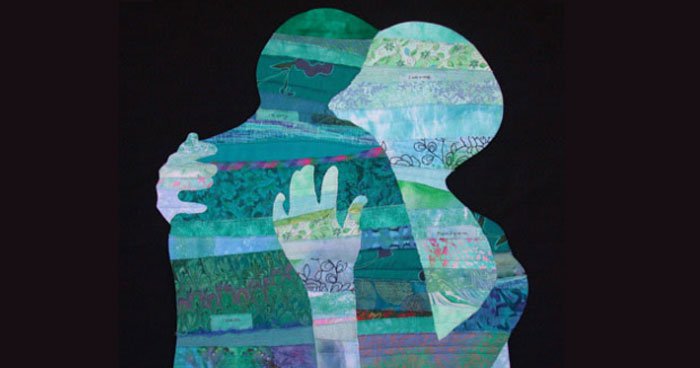
Often, when talking about shame, we tend to lump together many terms.
Some popular ones include: Guilt, shame, embarrassment.
Instead of seeking to understand each word’s unique characteristics, or ways of appearing in our bodies and lives, we lump these feelings together. In doing this, we reinforce the habit that so many of us fall prey to: Allowing the shame to silence us.
Shame is by far one of the most difficult emotional barriers to vulnerability we encounter. It is the unwelcome visitor after getting up, trying, and failing, as we all are bound to do at some point. When we encounter the inevitable failure, shame ambles on over towards us and adds insult to injury, attempting to convince us that this falling down we have experienced makes us something other than human—something much worse.
Shame silences us.
Shame cancels plans and projects, deletes drafted letters and plants seeds of self doubt in the psyche.
It can be helpful to clearly define the different specific emotions surrounding this concept in order to clearly identify what we are feeling. There can be no moving forward or releasing until the emotion we are trying to release is identified and understood.
Guilt is the first word to define. The internal thought process that accompanies guilt?:
“I did something bad.”
Guilt is an emotion similar to regret in the sense that it occurs only in hindsight, after looking back on actions taken or events transpired, and coming to the conclusion that one could have chosen differently to come to a better outcome.
While self-reflection is crucial to growth, being dragged back into the past by mistakes made long ago will not help you.
Shame, a step further, falls into the category of: “I am bad”.
This is an especially poisonous thought pattern, because unlike guilt, you do not label the action as “bad”; you label yourself as “bad”. To shape one’s concrete identity around something as fluid and changing as emotions and events that flow in and out through life, is to guarantee some degree of suffering.
Embarrassment: “They saw/know I did something bad.”.
When we habitually fall prey to embarrassment, we assume the role of “mind-readers”. As a human being with human limits, the only thoughts we truly know are our own. As an extension of this, any thoughts or opinions we imagine others may have of us are just that—imaginary. We cannot be in another’s mind or see ourselves through another’s eyes.
Therefore, is it not reasonable to say that the only opinion of true, lasting value is our own?
This is not to say one should totally shut oneself off from feedback. Feedback is crucial to growth and connection. It is to say, however, that the criticisms we imagine others have of us in those moments of shame and failure, are not real.
In Brene Brown’s “Daring Greatly”, she speaks about a concept called “shame resilience”. Shame is a part of the human experience, and therefore unavoidable. We cannot run or hide from it; however, we can develop the skills to move past it, and not allow it to inhibit our growth.
Why is developing resilience to shame so crucial to maintaining healthy relationships and lives? See if you can call to mind a moment of shame in your past.
I know I can. I remember vividly the physical and emotional sensations that occurred for me in that moment.
It was a normal Thursday night, but I was not in a normal place emotionally. Recurring nightmares had plagued my childhood, and due to some unknown trigger, they returned to rear their ugly heads once more the previous evening.
Although I was fully cognizant of their lack of substance, I awoke deeply triggered and felt heavy with sadness throughout the remainder of the day. My partner noticed this unusual disposition, and as any loving companion would do, attempted to check in with me. After just a few sentences being exchanged, I found myself bursting into uncontrollable tears and sobs.
I felt weak, vulnerable, and exposed. I tried to hide myself even in this vulnerable moment by turning away, by hiding my face, by apologizing. I felt a deep shame for my experience, and for allowing another to witness this. I refused to describe the nightmare that was still playing over and over in my mind, in spite of pleads from my partner to share what had happened—to choose to connect in this difficult moment.
In those moments, however, through gentle persistence and love, he began loosening my grip on the situation and slowly I began to let go of the “shame reaction” (defensiveness, denial of the situation, hiding), and choose the shame-resilient option: connection. I began speaking about what and how I was feeling. I began to share why I was feeling resistant.
And I was met with nothing less than wholehearted support.
By choosing to connect and share our experiences, we are choosing integrity in that moment, and to accept an opportunity for connection. By practicing authenticity in the face of shame and moving through it without sacrificing our values, we develop a resilience to shame.
May we all become more resilient in the face of shame, and live more wholeheartedly for our efforts.
~
Relephant:
My Struggle With Deep Dark Shame.
Author: Kelty
Editor: Erin Lawson
Images: Author’s Own
 Share on bsky
Share on bsky


Read 0 comments and reply